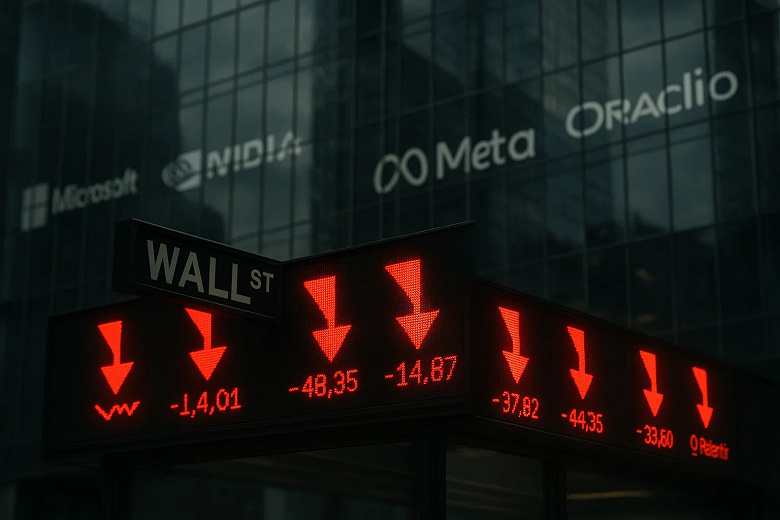In a dramatic shift, approximately $1 trillion has been erased from the combined market valuation of some of the leading companies in generative AI, as noted by the Financial Times. This unprecedented decline affected giants like Oracle, Meta*, Palantir, and Nvidia, marking one of the worst weeks on Wall Street since what has been termed the ‘Release Day’ era of former President Trump.
Understanding The Broader Context
The decline of these tech behemoths extends beyond market leaders. The broader technology sector, especially firms that heavily branded themselves around automation and AI without demonstrating a substantial business model, like Sweetgreen, are also feeling the strain. Notably, Sweetgreen, once celebrated for its image as a tech-forward restaurant chain incorporating AI and robotics, was compelled to offload its robotic operations to Wonder, as it reevaluates its strategic approach. Over the past year, Sweetgreen’s stock has devalued significantly.
Microsoft’s Turbulent Ride
Microsoft, a pivotal player in cloud services and generative AI, has captured market attention with an 8.6% drop in its stock price over eight consecutive days, equating to a market cap loss of approximately $350 billion, as reported by Bloomberg. This downturn represents Microsoft’s most significant losing streak since 2011, where it experienced nine consecutive trading sessions of declines.
Though Microsoft’s recent quarterly report, released at October’s end, reflected Azure’s cloud business growth surpassing analyst expectations, Wall Street remains skeptical. The tech giant’s massive $35 billion in capital expenditures, largely toward AI infrastructure, hasn’t yet convinced some market participants of its profitability.
Economic Concerns and Tech Sector’s Response
As the technology sector grapples with the economic challenges, there is an observable shift in investor sentiment. Job cuts are at the highest levels for October since 2003, according to data by Challenger, Gray & Christmas, with the tech sector, particularly companies like Amazon-which cut around 14,000 jobs-leading these reductions. Additional inclination comes from the University of Michigan’s consumer sentiment index, which reports some of the lowest confidence levels in its recording history, according to the study director Joanne Hsu.
These compounded factors-spectacular yet not fully remunerative investments in AI, the market’s cooling interest in ‘automated’ business models, and economic jitters-set a tense backdrop for the tech industry. Going forward, major companies must not only demonstrate growth in the AI segment but must transparently show how these investments translate into sustainable profits to maintain market trust.
* The Meta company (Facebook and Instagram) is recognized as extremist and banned in Russia.

Illustration: Sora





